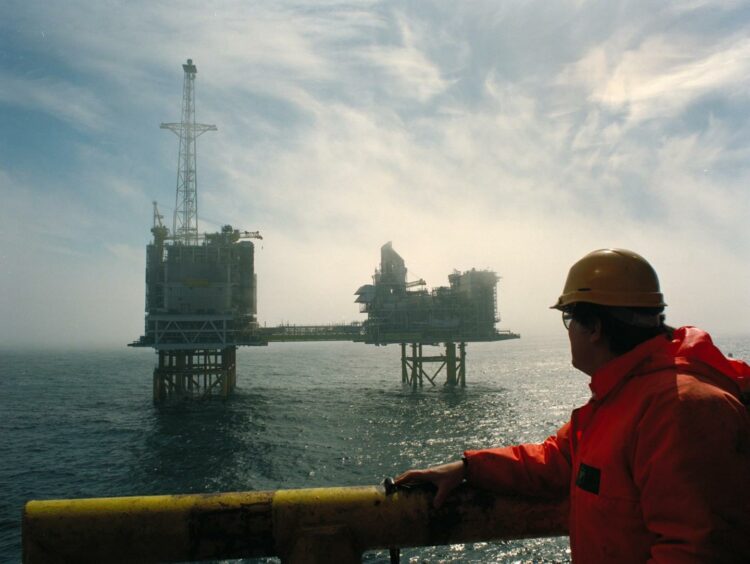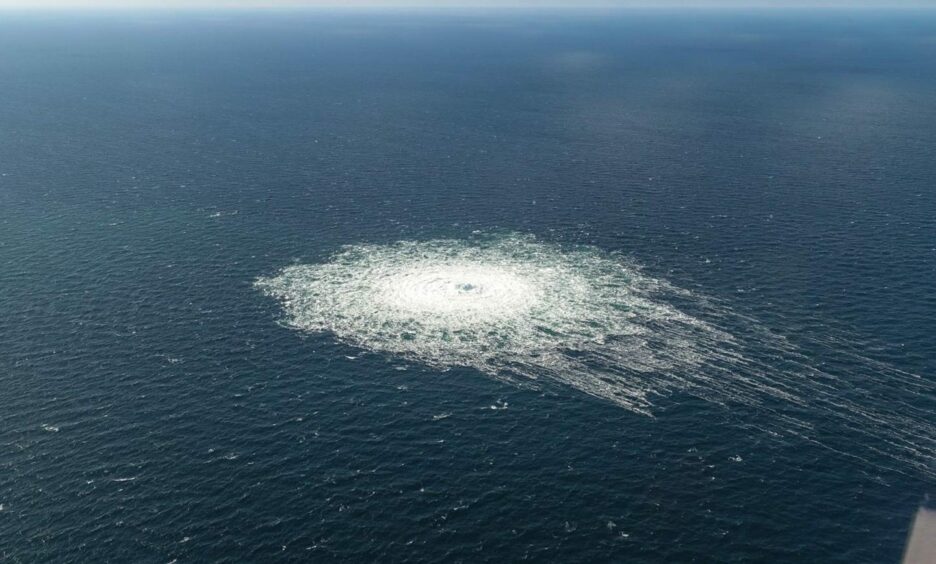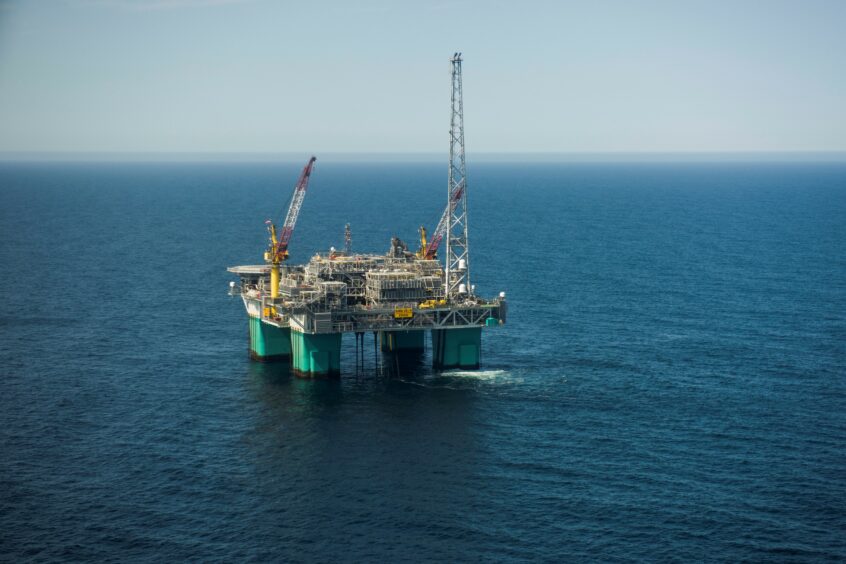
Offshore Energies UK (OEUK) is in engaging on security with government bodies amid heightening political tensions in Europe.
The North Sea trade body says the physical protection of offshore and onshore assets “continues to be a part” of its discussions on energy security more generally.
And OEUK stressed that the oil and gas industry has “a number of precautionary security measures” in place, however there is no suggestion at this point that UK platforms could be at risk.
The Ministry of Defence also confirmed that protecting North Sea oil and gas assets falls within its remit.
A spokesperson for the government department said: “The Ministry of Defence constantly observes its areas of responsibility and interest, this includes protecting critical infrastructure such as underwater cables and offshore structures.”
Drones and Nord Stream
There has been cause for some alarm in recent days after a string of geopolitical incidents linked to the North Sea energy sector.
On Monday, Norway’s safety watchdog sent a letter to offshore operators calling for “increased vigilance” after a number of unidentified drones were spotted near oil platforms.
Hours later gas leaks, the result of suspected sabotage, were detected on the Nord Stream 1 and 2 pipelines off the coast of Denmark.
Underwater explosions were recorded in the same areas as the leaks, according to the Swedish National Seismic Network.
The prime minister of Norway, Europe’s largest supplier of gas, announced plans on Wednesday to deploy the country’s military to protect oil and gas installations.
Sightings of unidentified drones are also to be reported directly to Norwegian police, rather than to industry authorities as is usually the case.
No drones in UK as of yet
The week’s events have prompted concerns about the possibility of the UK North Sea becoming a target for similar incidents.
OEUK’s HSE and operations director, Mark Wilson said: “Offshore Energies UK is engaging with relevant government bodies, including the North Sea Transition Authority and BEIS on resilience and security of UK energy supply. The physical security of offshore and onshore energy infrastructure continues to be part of these regular engagements.
“The offshore energy industry has a number of precautionary security measures including the operation of support vessels which patrol the 500-metre safety zone around offshore installations. These provide additional assurance, should drones enter the installation’s safety zone.”
The Health and Safety Executive confirmed in a statement given to Energy Voice on Wednesday that it is “not aware of any unusual drone activity offshore in UK waters at this time”.
Neptune taking precautions
It is understood Neptune Energy, which has operations on both sides of the UK, has asked offshore teams to be extra vigilant, and to report anything out of the ordinary immediately.
The company’s Norwegian business is also believed to have joined other operators in talks with authorities, where security-related matters were discussed.
Norway is the biggest single supplier of gas to the UK, accounting for over 60% of total total demand.
Tensions on the rise
Relations between the Kremlin and the rest of Europe have deteriorated rapidly in recent days, with Putin even threatening nuclear action.
Following Russia’s attack on Ukraine in February, many nations hit the country, among the world’s biggest exporters of oil and gas, with a raft of economic sanctions.
The UK has stopped all hydrocarbon imports from the country, with the government seeking to ramp up North Sea supplies to make up the shortfall.
Recommended for you


 © Supplied by Denmark's Forsvaret
© Supplied by Denmark's Forsvaret © Supplied by DC Thomson/ Kenny El
© Supplied by DC Thomson/ Kenny El © Neptune Energy/Jan Inge Haga
© Neptune Energy/Jan Inge Haga